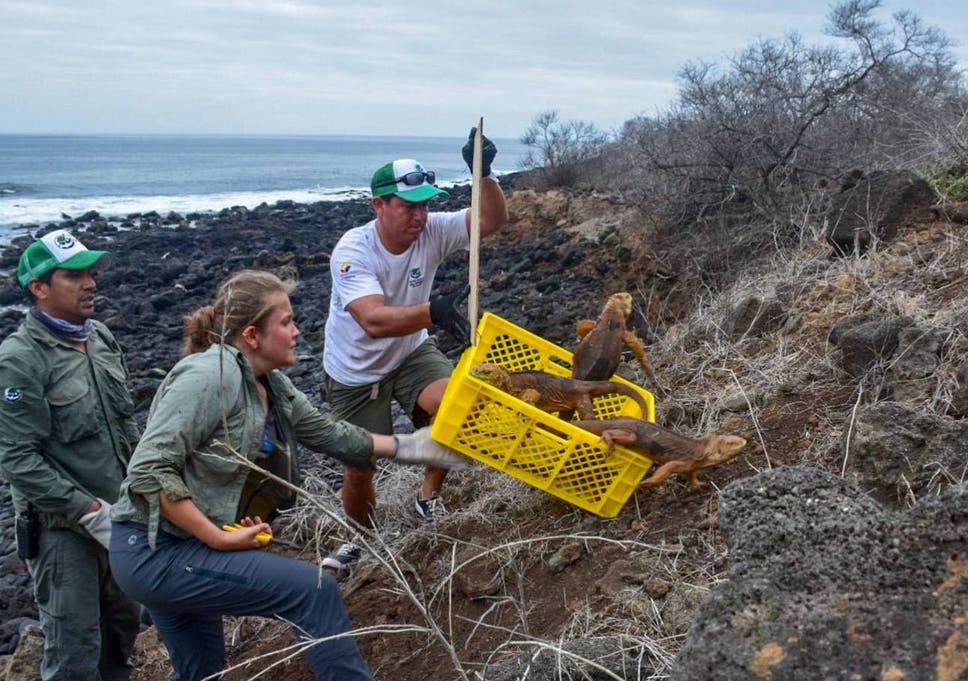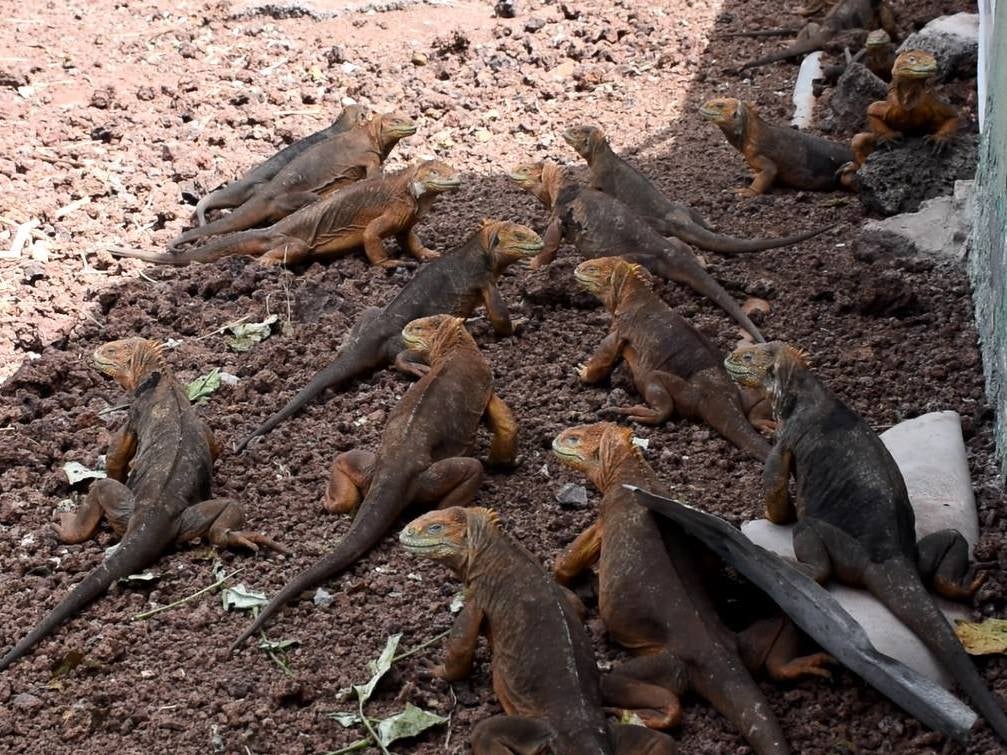
Iguanas have been re-introduced to an island in the Galápagos archipelago for the first time in almost two centuries.
An initiative developed by the Galápagos National Park authority saw 1,436 land iguanas moved to Santiago Island from neighbouring North Seymour Island between 3 and 4 January.
The project involved 25 park rangers and is part of the ecological restoration of Santiago Island.
Land iguanas were last sighted on the island by Charles Darwin in 1835.
They were later wiped out by invasive species such as the feral pig, Jorge Carrión, director of the Galapagos National Park, said.

Feral pigs on the island were eradicated by 2001 as part of Project Isabela, an initiative which eliminated large introduced mammals from some of the islands on the archipelago.
Their eradication means the iguanas have a better chance of survival.
The land iguanas were released in two of the island's coastal areas, Puerto Nuevo and Bucanero, which have similar ecosystems to the iguanas' natural habitat.
The project, carried out by the Galápagos National Park authority and New Zealand's Massey University, was developed in response to a loss of vegetation on North Seymour Island, which threatened the food supply of 5,000 iguanas.
Some iguanas will remain on North Seymour Island to avoid disrupting the vegetation that remains there.
"The earth iguana is a herbivore that helps ecosystems through the dispersal of seeds and the maintenance of open spaces without vegetation," Danny Rueda, director of ecosystems at the Galápagos National Park authority, explained.
Officials also plan to manage introduced species, such as ants and rodents, to protect future nesting areas of land iguanas in Santiago.







